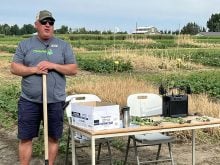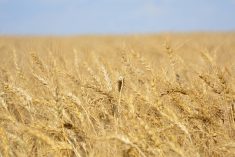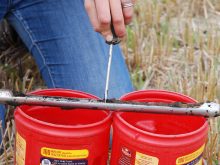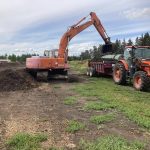Tax season for many farmers is synonymous with judgment day.
When I was on the farm, it was either, “did we actually make that much money and if so, where is it,” or “things will be better next year.”
Either way, the confirmation from our tax returns was that disposable income fell short of our needs.
I spent nearly 40 years on the farm so my knowledge is first-hand. The farming situation has changed little today.
It is common for farmers and their spouses to seek off-farm employment. Some readers may already be employed off the farm or have devised a way to be self-employed.
Read Also

AI expected to make itself felt in food systems
Artificial intelligence is already transforming the food we eat, how farmers produce it and how it reaches the consumer, experts say
Farming is a long-term investment and the decision to seek off-farm employment can improve your professional skills and add to disposable income.
For those considering off-farm employment, the common questions are “where do I start” and “what skills do I have?”
- Take inventory of yourself.
There are several elements to consider, beginning with your skills and experience as they relate to farm or family work. There are also learned skills through relationships with others, such as time management, teamwork and self-management. These skills can be transferred to many other careers.
- Look at your credentials, education, training and achievements.
Recognize that there may be more than one way to describe them. Repackaging can reveal that it is easier than you think to make a transition. This allows you to emphasize various aspects of your achievements, depending on the direction you choose.
Review and update your resume. If you don’t have one, create one.
- What motivates you? What satisfies you?
There may not be many jobs available in smaller communities but it is a bonus if you can find something that you love to do.
For example, if you love being with children, perhaps there is an opening at the local day care or you could consider a mini-daycare in your home. If you love driving, maybe you should take a semi-truck driving course and become licensed to fill that huge need in the transportation industry.
Hobbies and other interests could be turned into a lucrative home-based business.
- Complete several career assessments.
If you are considering investing in additional education, be certain you are heading in the right direction. Once you know what you want to do, set your goals and complete an action plan. Identify possible barriers and how to overcome them. The best idea is to make a thorough plan.
This plan is not unlike a seeding plan. Every fall, once the harvest is done and the fall work completed, it is a time to reflect. Your job plan should reflect on your skills, training and aptitude.
Selecting crops and seeds that hold a better chance for profit is like assessing the job market for positions that suit your skills.
Selecting the right seeds for your environment is like selecting a job you love to do.
Planting the seeds at the right time is like completing your goal-setting plan.
Fertilize with dedication, fuel with your passion and determination, nurture with encouragement and then harvest.
As well, don’t forget to celebrate your successes along the way.
“Being defeated is often a temporary condition. Giving up is what makes it permanent.”
– Marilyn vos Savant
“A journey of a thousand miles begins with a single step.”
– Lao-tzu, Chinese philosopher (604 BC – 531 BC)
“Success is not the key to happiness. Happiness is the key to success. If you love what you are doing, you will be successful.”
– Albert Schweitzer
Therri Papp is a career development educator offering on-line personal development programs and career consulting to individuals and business groups. For further information call 306-249-4937 or visit www.freeyesinfo.com.















